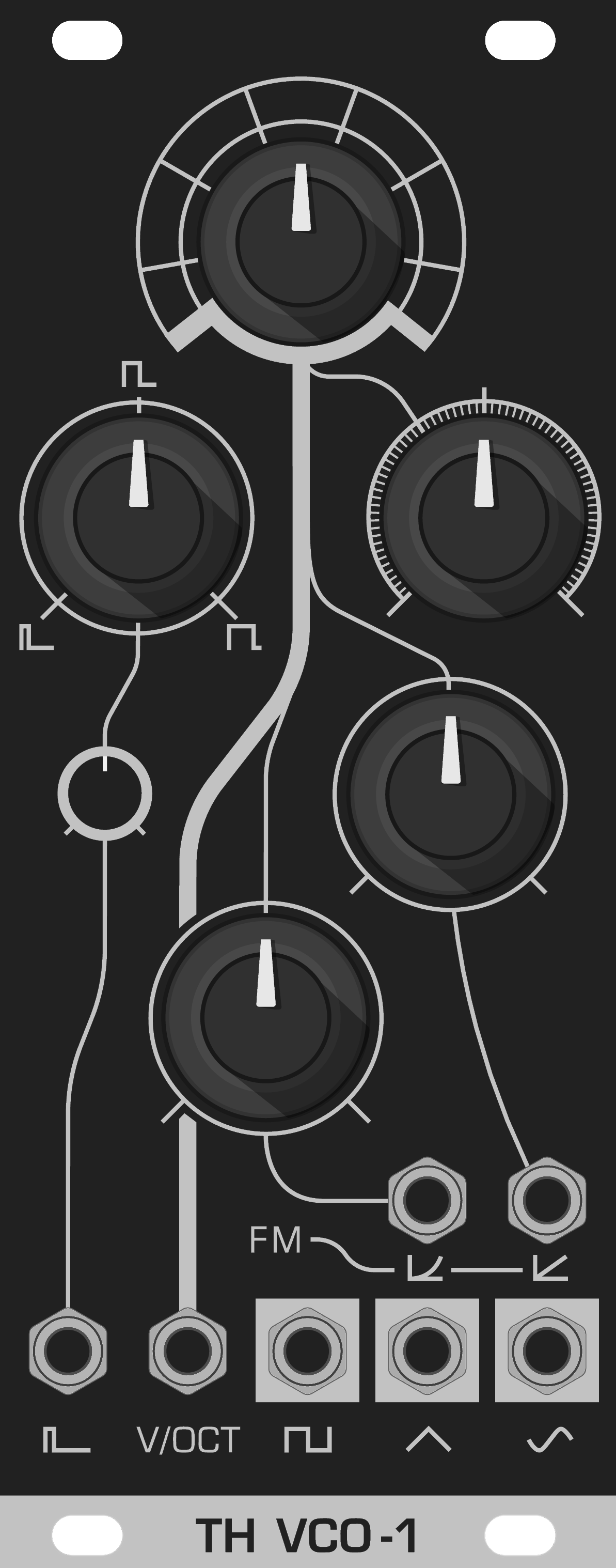TH-VCO1

10HP
Current Draw
50mA @ +12V
50mA @ -12V
The TH VCO-1 is a eurorack adaptation of Thomas Henry's famous VCO-1, a stable VCO with a descrete triangle integrator core, linear and exponential FM inputs and 3 waveforms (Triangle, Sine and Square). The Square's Pulse Width may be adjusted via knob and external control voltage.
In a workshop at the Art University HFBK in Hamburg, Germany, we decided to build a VCO. We had a look at different schematics and found the VCO-1 by Thomas Henry fitting. Thomas came up with a smart Triangle-Integrator-Core, and a good and stable pitch CV-Input, but designed it around the (now) hard to get OTA -IC CA3080.
Tom Whitwell from Music Thing Modular decided to design a ±12V adaption of the original ±15V circuit. In the course of designing that, he decided to throw out the CA3080 and replace it with a modern LM13700 OTA amongst other thing. We further improved the circuit by adding a 10V voltage reference to the power section, which should stabilize the VCO's pitch even when the Voltage fluctuates (a noisy module with many LEDs nearby etc.)
There has been a complete redesign of both panel and boards and one idea was to make it (relatively) DIY-friendly, because it was meant to be soldered by students with little to no experience with synthesizers and/or soldering. A real, usable first VCO.
What does it Sound like
The TH-VCO1 has a raw analog character. It's waveforms are clean with just the right amount of analog grit to it.
A single TH-VCO1 plugged into a Wasp Filter:
Two TH-VCO1s in FM-Modulation (using a NLC-Cluster as VCA/Mixer and Polivoks VCF as Filter):
Two TH-VCO1s crossmodulating each other (gentle to full depth, both lin FM and exp FM):
A track utilizing a single TH-VCO1 and a Wasp Filter for bassline:
Credit where credit's due
All rights to this design rest with Thomas Henry. I do not claim or grant any copyright or license to this design. This is the outcome of an University course at HFBK Hamburg (make sure to check the ever expanding repo and wiki of HFBK). A limited run of 50 boards has been produced, which were allowed to be sold (most will be used internally though). We are not allowed to share CAD files of the circuit as "Thomas Henry prefers that all hardware for my designs come from Fonik only, and that schematics for his designs come from Scott and E-M". I will take this page down if he asks me to.
Contact to check if kits or boards are still available
